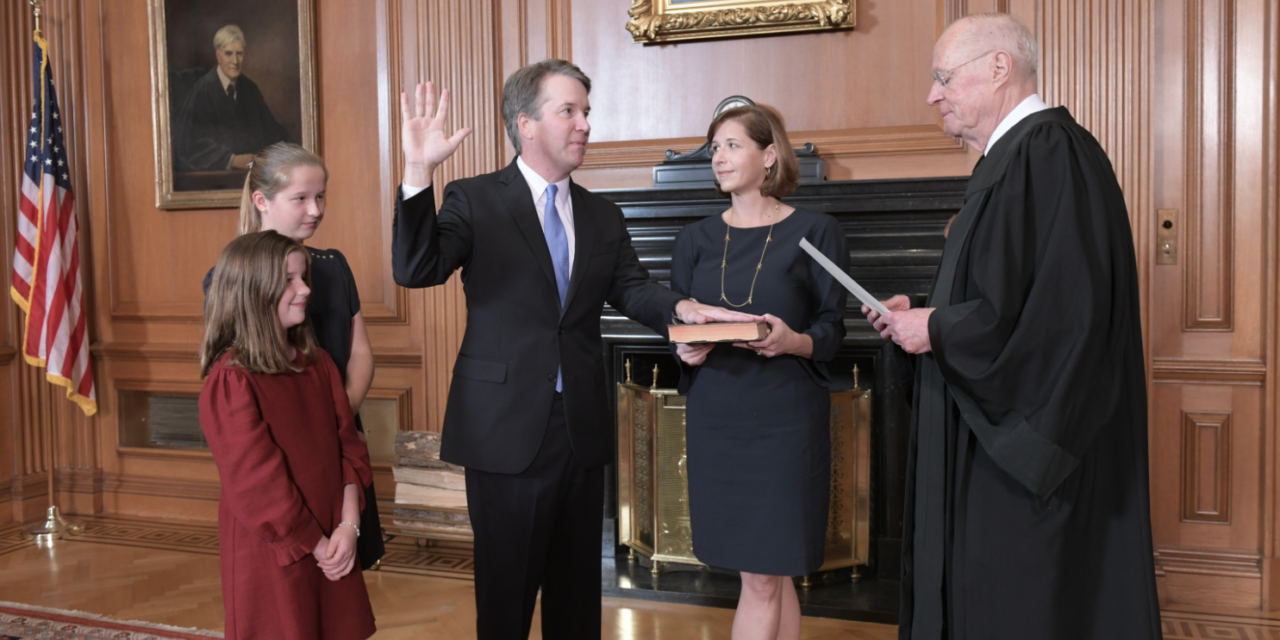A federal grand jury on June 15 returned an indictment charging Nicholas John Roske, age 26, of Simi Valley, California, with attempting to murder United States Supreme Court Associate Justice Brett Kavanaugh, a federal crime that carries a maximum sentence of life in a federal prison.
The announcement of the indictment from the United States Attorney’s Office for the District of Maryland explains that Roske is charged with one criminal count of attempting to kill the Justice after arriving in front of the Kavanaugh home at approximately 1:00 a.m. on the morning of June 8.
According to the indictment and other police documents, Roske was taken into custody without incident after calling 911 to turn himself in. In his possession was a Glock 17 pistol, two magazines loaded with 10 rounds of 9 mm ammunition, and 17 rounds of ammunition contained in a plastic bag, a tactical knife, pepper spray, and other items he intended to use in his attempt to murder Kavanaugh.
The events surrounding his decision to fly from California to the Washington, D.C. area to assassinate Justice Kavanaugh, and his ultimate arrest unfolded as follows.
Roske was apparently upset about two things: (1) The leak of a draft Supreme Court decision that appears to overturn Roe v. Wade in the pending Dobbs v. Jackson Women’s Health Organization case, and (2) the Uvalde, Texas, mass shooting. He took a plane from California, arriving by cab at the front of the Kavanaugh home in Chevy Chase, Maryland with a suitcase and backpack, intending to kill the justice.
Two federal marshals were stationed in front of the home, and upon seeing them, Roske turned and walked away. Then, according to Montgomery County Police Chief Marcus Jones, Roske texted his sister and told her of his intentions. The sister convinced him to call 911, which he did.
When police arrived, Roske surrendered peacefully. He was taken into custody approximately 1 1/2 blocks from the Kavanaugh home shortly before 2:00 a.m.
The federal indictment is actually the second set of charges against Roske. In the criminal complaint filed a week ago, the charges carry a maximum sentence of 20 years. However, the new charge contained in the federal indictment carries a maximum sentence of life imprisonment.
Does the fact that Roske ultimately decided to turn himself in to authorities rather than attempt to complete his intended crime mean he cannot be convicted of attempted murder?
Not necessarily. According to legal expert Eugene Volokh, under federal law if the prosecution can prove that Roske took a “substantial step” toward the commission of his crime, he could still be convicted of attempted murder. Traveling armed to the victim’s house, would in his opinion, qualify as a substantial step.
Relatedly, the United States House of Representatives on June 14 passed legislation, already approved by the Senate, to bolster security for Supreme Court justices by adding their families to the existing law that authorizes the Marshal of the Supreme Court and Supreme Court police to protect the justices.
Millions of Americans have been praying for the safety of the justices ever since the Dobbs draft decision was leaked on May 2. Those prayers, plus the presence of federal marshals and a sister’s earnest pleas to her troubled brother, worked to avert a catastrophe.
Lord, please continue to shield the justices and their families from harm, and may the upcoming Dobbs decision once and for all send Roe v. Wade to the ash heap of history, and may it all work to change hearts and minds in this country about the value of preborn human life.
Related:
Armed Man Arrested Outside Justice Kavanaugh’s Home. Pray for the Justices’ Safety.
Photo from U.S. Supreme Court.






